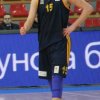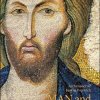Извор: ДК Михајло Пупин Идвор
A great man is one who collects knowledge the way a bee collects honey and uses it to help people overcome the difficulties they endure - hunger, ignorance and disease!
- Nikola Tesla
Remember, remember always, that all of us, and you and I especially, are descended from immigrants and revolutionists.
- Franklin Roosevelt
While their territory has been devastated and their homes despoiled, the spirit of the Serbian people has not been broken.
- Woodrow Wilson
Latest Articles
- Crafting Pišanice - Serbian Easter Eggs with Natural Dyes
- From Nicaea to Today: The Enduring Legacy of Synodality and Unity in the Church
- The Role of the Deacons in the Church
- The Circle of Serbian Sisters
- Vinka Ellesin
- Богородица као екстатично биће
- Bishop Maxim's Homily During the Assembly of Bishops XII Opening Liturgy
- Leon Joseph Lysaght Jr.
- Olga Gradojevich
People Directory
Никола Јокић
Никола Јокић (Сомбор, 19. фебруар 1995) српски је кошаркаш. Игра на позицијама крилног центра и центра, а тренутно наступа за Денвер нагетсе.Три сезоне је наступао за Мега Лекс и проглашен је за најкориснијег играча Јадранске лиге. Изабран је у другом кругу НБА драфта 2014. као 41. пик од стране Денвер нагетса са којима је у јулу 2015. потписао уговор. Јокић је постао други Србин у НБА лиги који је постигао четрдесет или више поена на једном мечу, пре њега то је урадио Предраг Стојаковић.
Read more ...Publishing
Man and the God-Man
by Archimandrite Justin Popovich
"Father Justin Popovich, pan-orthodox witness to the God-revealed and Christ-given Eternal Truth, whose testimony can be even seen within this collection of his articles - that "the mystery of Truth is not in material things, not in ideas, not in symbols, but in Personhood, namely the Theanthropic Person of the Lord Christ, Who said: I am the Truth (John 14:6), Truth perfect, never diminished, always one and the same in its complete fullness - yesterday, today, and forever (Heb.13:8)."
The treasure to be found in this anthology of neopatristic syntheses consists of: "Perfect God and perfect man" - Nativity Epistle, where Fr Justin boldly exclaim that "man is only a true man when he is completely united with God, only and solely in God is man a man, true man, perfect man, a man in whom all the fullness of Godhead lives."; "The God-man" - The foundation of the Truth of Orthodoxy - Ava Justinian language of love in Christ-centered reflections of Truth; "The Supreme Value and Infallible Criterion"- contemporary philosophical reflections on visible and invisible realities; "Sentenced to Immortality" - a homily on the Resurrection or Our Lord Jesus Christ; "Humanistic and Theanthropic Culture"-criticism of European anti-Christian culture; "Humanistic and Theanthropic Education" - indicative pondering of consequences of education without God.. ; "The Theory of Knowledge of Saint Isaac the Syrian" - Faith, prayer, love, humility, grace and freedom, the purification of the intellect, mystery of knowledge; "A Deer in a Lost Paradise" - Ava's renowned poetic essay, a confession, and deepest longing for all-sweetest Jesus...
Latest US News
- Волт Богданић: Американац српског порекла добитник три Пулицерове награде за истраживачко новинарство
- The American Srbobran - Building a Partnership with the Library of Congress and Institutions in Serbia
- „Американски Србобран“ унапређује сарадњу са Конгресном библиотеком у Вашингтону и институцијама у Србији
- Преминуо чувени амерички песник српског порекла Чарлс Симић
- Јован Дучић међу великанима у кливлендској башти
- Србија, Африка, Америка и Канада славе дан Теслиног рођења
- Документарац Немање Станковића приказан у Холивуду
- Tesla Rhapsody
- Saved by Beauty: Dostoevsky in New York
- Izložba likovnih radova o Dostojevskom
- Steve Popovich - the man who discovered Meat Loaf
- Odlazak čoveka koji je mnogo uradio za očuvanje sećanja na lik i delo Nikole Tesle
- Naš otac Balkanac za Ruse je smislio bijelu Coca-Colu
- Neverovatan poduhvat srpske pravoslavne zajednice u Americi
- Prva Srpkinja u finalu najveće evropske nagrade za pronalazače
Latest Serbia News
- На Станфорд листи 15 крагујевачких научника
- Naše postojanje skriva mračne i svetle strane, i veliko je umeće prepoznati ih i razlučiti
- Српска застава је најлепша на свету – на основу резултата анкете милион људи
- Недеља америчке културе
- Preminuo pisac Aleksandar Petrov
- Spomenik Branku Pešiću radiće srpski vajar iz Los Anđelesa
- Metropolitan Amfilohije buried in the Cathedral church in Podgorica
- Memorial prayer rite for Metropolitan Amfilohije in the Cetinje Monastery
- На данашњи дан рођен је Михајло Идворски Пупин
- Алекса је стигао до Принстона, али Математичкој гимназији се радо враћа
- Каубој православац и 40 Американаца посетили Косово
- Архив Војводине: Сведочанства времена у спомен на херојске претке
- Премијера „Теслиног народа“ на Коларцу
- Када се велики умови играју науком о подацима
- Američka vojska donirala je vrednu opremu klinici u Nišu




